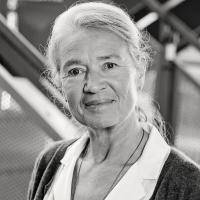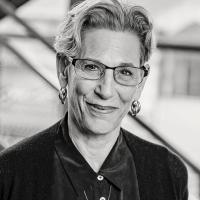From women’s liberation to gender perspectives: DIIS highlights global gender issues
DIIS is introducing a new seminar series on gender and (in)security. Two of the researchers behind the seminar series explain why we need to continue to talk about gender and equality, both in the public debate and in research, and what Denmark can learn from countries in which the struggle for women’s rights has been much harder.
Why do we need a series of seminars focusing on gender and (in)security?
'At the moment, there are both major societal problems around gender and equality and a public awareness of these problems. Authoritarian leaders and right-wing politicians threaten the gains that activists have fought to achieve. Denmark also lags behind on gender equality, and we want to show that Denmark and the global North can learn from the global South, where activists have had to fight much harder for equality rights and do not rest on their laurels,' comments DIIS Senior Researcher Robin May Schott, who works on gender-related violence during war and ‘peace’ and is one of the organisers of the Gender and (In)security seminar series.
The seminar series comprises seven seminars and webinars where researchers, practitioners and activists discuss the ways in which gender plays a role in areas such as peacebuilding, political extremism, migration, surveillance and activism.
- 29/9 Looking Inward: migration smuggling and gender in the Global North
- 23/10 Antifeminisme er i fremmarch
- 27/10 Treacherous Sea of Data: race, gender, and inequality in emerging tech
- 4/11 Gender, Peace and Security
- 9/12 Violence against Women and 16 Days of Activism: how to mobilize against gendered violence?
- 15/12 Gender, Security and Right-Wing Extremism
Find out more about the seminars
'Another important reason why we’re looking at this subject now is that the UN’s Women, Peace and Security Agenda celebrates its 20th anniversary this year. Back in 2000, using this agenda, the UN started to focus on gender and women as important players in peace-building activities. We have traditionally focused on men as the agents of war and peace, but we have found that if you want to ensure sustainable peace initiatives, you need to include women in these initiatives. Women are not just mothers and daughters, but activists and sometimes even take part in the fighting,' comments Ninna Nyberg Sørensen, co-organiser and Senior Researcher at DIIS, where she carries out research on international migration, conflict and development.
'With the title Gender and (In)security, we also want to point out that although public awareness of gender and security is increasing internationally, some of the very measures that were designed to promote security have the opposite effect. For example, this may be violence perpetrated by peace-keeping forces, violence that is embedded in nationalist, conservative, anti-democratic ideologies, or the reproduction of inequalities through technologies that market themselves as promoting democratic dialogue,' adds Robin May Schott.
From women to gender
There is no doubt that the gender debate has flourished in recent years with fourth-wave feminism and the #MeToo movement that has finally reached Denmark. Do similar waves of development exist in research?
'Research previously focused very much on raising the profile of women by studying, for example, women’s role in paid and unpaid work, migration, and development. In other words, the starting point for feminist research was: world history has been about men and now we need to make women visible. But gender research slowly started to become a lens through which we could understand all kinds of social issues. This development in research has opened up a wide range of new insights – not just about women, but about men and masculine identity,' explains Ninna Nyberg Sørensen and continues:
'By looking at gender instead of women, we have been able to show that women are not just sweet, loving and passive. We also see that women exercise power – even negative power! Gabriella Sanchez, who is the main speaker at our seminar on gender and the trafficking of migrants, has dispelled the myth that all human traffickers are men. Some traffickers are women and have perhaps shown themselves to be more efficient human traffickers, even if they are also in it for the money.
This angle is both interesting and liberating. When it is possible to articulate female actors as participants on an equal footing with men, it becomes easier to avoid the resistance that early feminists encountered where they could easily be accused of only emphasising the positive sides of the female role. The literature on human trafficking also shows that the vast majority of those who become the victims of human trafficking are men whose labor is exploited. The category of sex worker is proportionally much smaller, but it is interesting that this is the one we always talk about and mobilise around politically.'
Where should the battle be fought?
You mention the UN resolution that introduces questions of gender in conflict and peacebuilding, and you also have a seminar dedicated to discussing it – why is this particular resolution so important?
'We cannot underestimate the importance of anchoring the debates and activism around gender in society. I think what’s so important about the UN’s Women, Peace and Security Agenda is that agendas become institutionally anchored. On the one hand, there is a danger that they become bureaucratised and diluted. But on the other hand, they have the support of an agreement to which a wide range of countries have committed themselves. Activist agendas that do not have institutional legitimation risk turning into dust,' Robin May Schott notes.
The UN’s Women, Peace and Security Resolution was the first agreement in the UN Security Council which looked at the way in which war affects women in particular and the ways in which women can contribute to peace-building initiatives.
The agreement focuses on the role of women in conflict prevention, their participation in peacebuilding, the protection of women’s rights during and after conflict, and women’s special needs in terms of repatriation, rehabilitation, reintegration and post-conflict reconstruction.
'But even when agendas like the right to abortion and the rights of sexual minorities have been secured in society’s institutions and laws, it is still important to fight for what has been achieved. Here, the global North can learn something from the global South,' adds Ninna Nyberg Sørensen:
'The story of equality is not one of progressive linear development, where rights that have already been achieved can always be used as a base on which to build. In Latin America, where I’ve worked a great deal, I’ve seen how women have succeeded in gaining the right to abortion, at least medical abortion, and that this right can suddenly be withdrawn – even under so-called non-authoritarian regimes. We cannot take achieved rights for granted, because different power constellations at a given time in a given society can suddenly reverse developments.
We also need to be aware of this risk in Denmark. We are not necessarily as far down the road of equality as many may believe we are compared to other countries. In Denmark, we still discuss the pros and cons of gender quotas, while a country like Mexico has far more progressive gender policies in place which specify that 40 percent of parliamentarians must be women. A national statistics agency also assesses the government’s finances every year in terms of how much is spent on men and how much on women. As an aid donor, Mexico also supports women’s rights across Latin America and even in some African countries.
This might sound paradoxical for a country that itself has such a high level of violence against and murder of women. But Mexico has these progressive gender policies in place because the country has fostered some extremely active feminists who have fought both against violence and for women’s rights. They are now in parliament, where they are continuing the fight. Their experiences are something from which we in the North can learn, even though some people think that it has been easier for us to achieve the level of equality we say that we have.'
Right now, we are in many ways living through a decisive moment in time
So, what is threatening equality now?
'Right now, we are in many ways living through a decisive moment in time. We’re seeing a growing trend in which authoritarian leaders in countries such as Poland, Hungary, Brazil – and even the United States – are attempting to set up a conflict between family values and women’s right to abortion and LGBTQ+ rights. This results in a backlash against gender debates and gender equality,' says Robin May Schott and continues:
'There’s also another danger which has become clear during the corona pandemic. Several DIIS researchers – for example, Sine Plambech and Helene Maria Kyed – have pointed to the way in which a crisis, which a pandemic is, exacerbates existing inequalities. If you live close together in a small apartment, you not only run a greater risk of becoming infected, but there is also a greater risk that violence within families will escalate. In many countries, including Denmark, crisis centres have seen an increase of violence against women and children.'
Keep talking
So here we are in 2020 with parts of the population in many countries supporting politicians who want to roll back many of these equality rights. In addition, structural inequalities still prevail between men and women in terms of, for example, wages and positions of power in society. Are we learning nothing from history? Is continuing to talk about feminism and equality any use?
'One of the things that I find frustrating when working with these subjects is that some things change, but many other things just repeat themselves. Such as, why do we still accept violence against women – both in war and peacetime? The fact that we see widespread violence which is obviously so unacceptable infuriates me.
That violence occurs again and again is perhaps due to the fact that each generation has to learn about it again and again. This isn’t the way it should be, but maybe each generation has to experience and recognise these problems on its own terms. I think Ninna put it very well when she said that the fight for rights must always be ongoing. That is why it is important that we keep talking about these issues, so that we continuously nuance our insights,' says Robin May Schott.
What role will this seminar series play?
'By looking at subjects that range widely from technology and migration to right-wing politics, activism and peacebuilding, we want to show how complex the gender debates are. We also want to avoid a constellation in which feminists in the North say: “listen to what we’ve got to teach you”. On the contrary, we want to highlight all the very different developments we see around the world in order to raise awareness of our own limitations,' says Ninna Nyberg Sørensen. Robin May Schott adds:
'Yes, a global perspective is vital, and I also think that in the light of what has happened in Europe and the United States over the past five or more years, our understanding of ourselves as pioneer countries is in crisis. But a crisis is also a new opportunity. Etymologically, the word crisis means a turning point. The direction we are turning is to be decided, but that is why we have a great responsibility for using the current public attention to these issues to continue to fight for human rights for men, women and children.'
Find out more about the seminar series and each individual seminar
DIIS Experts



